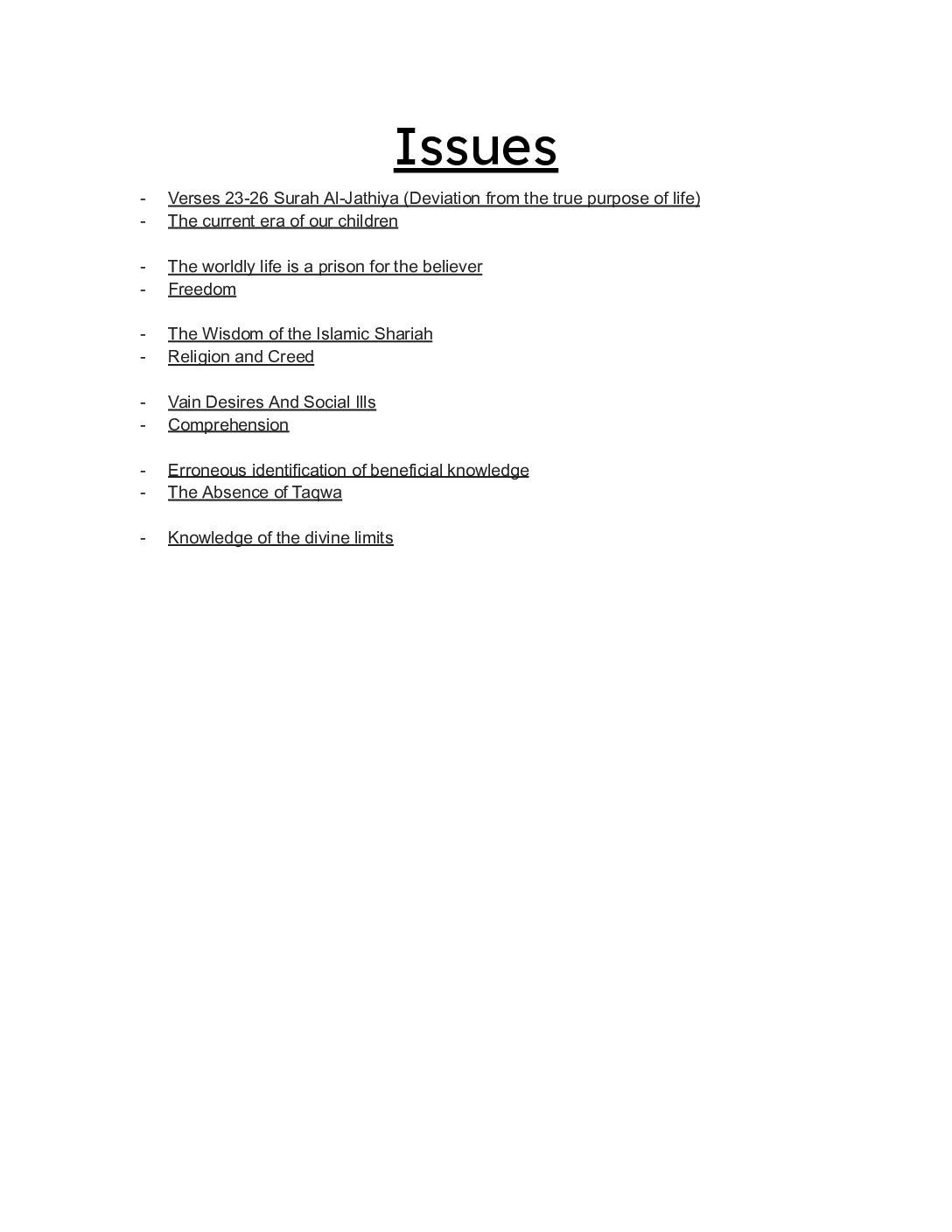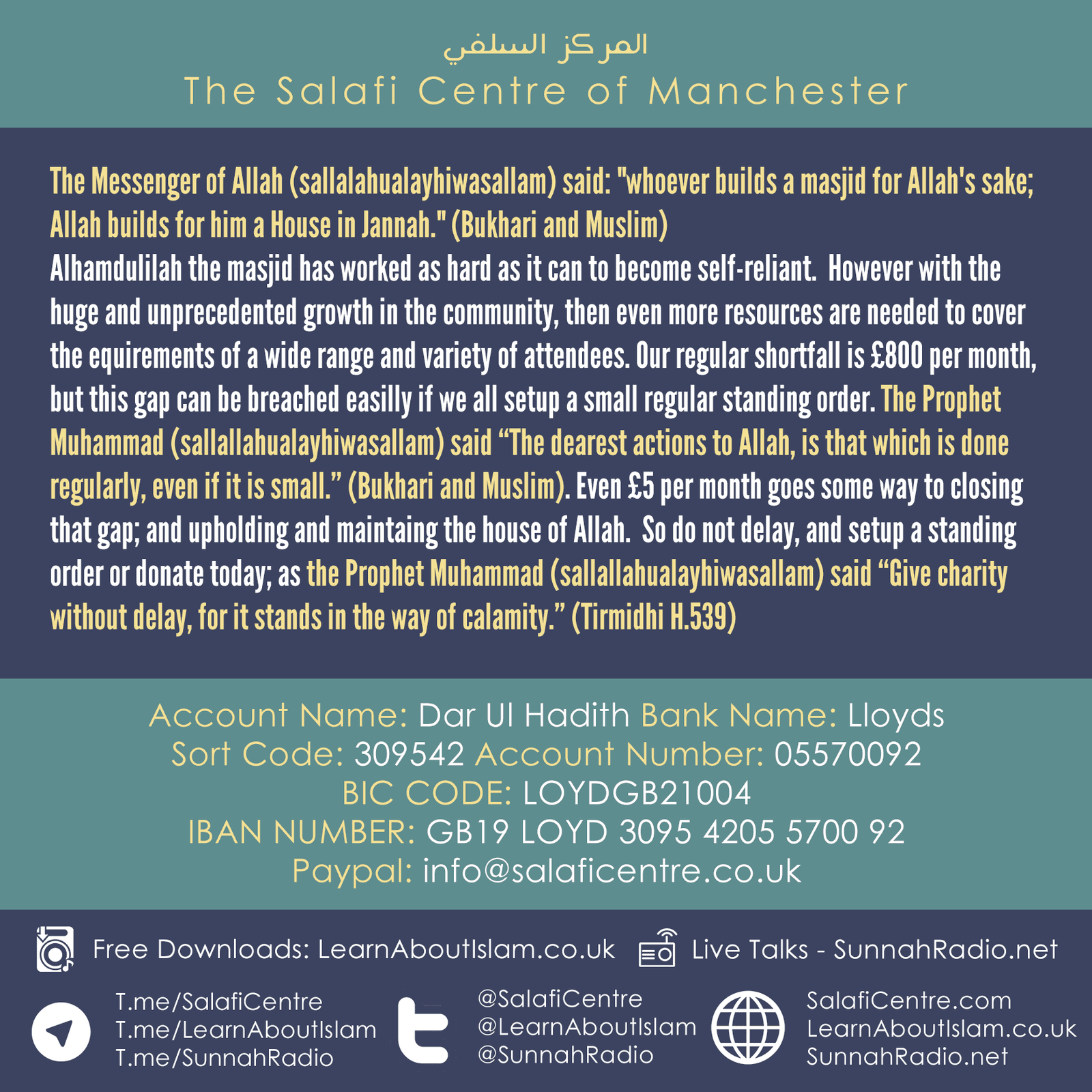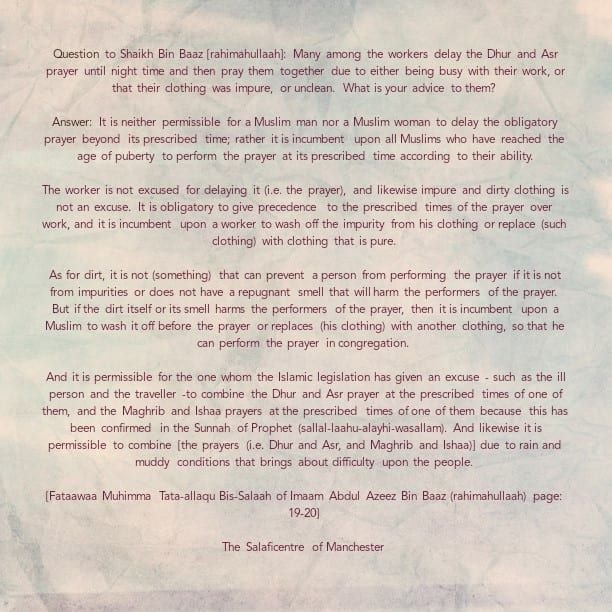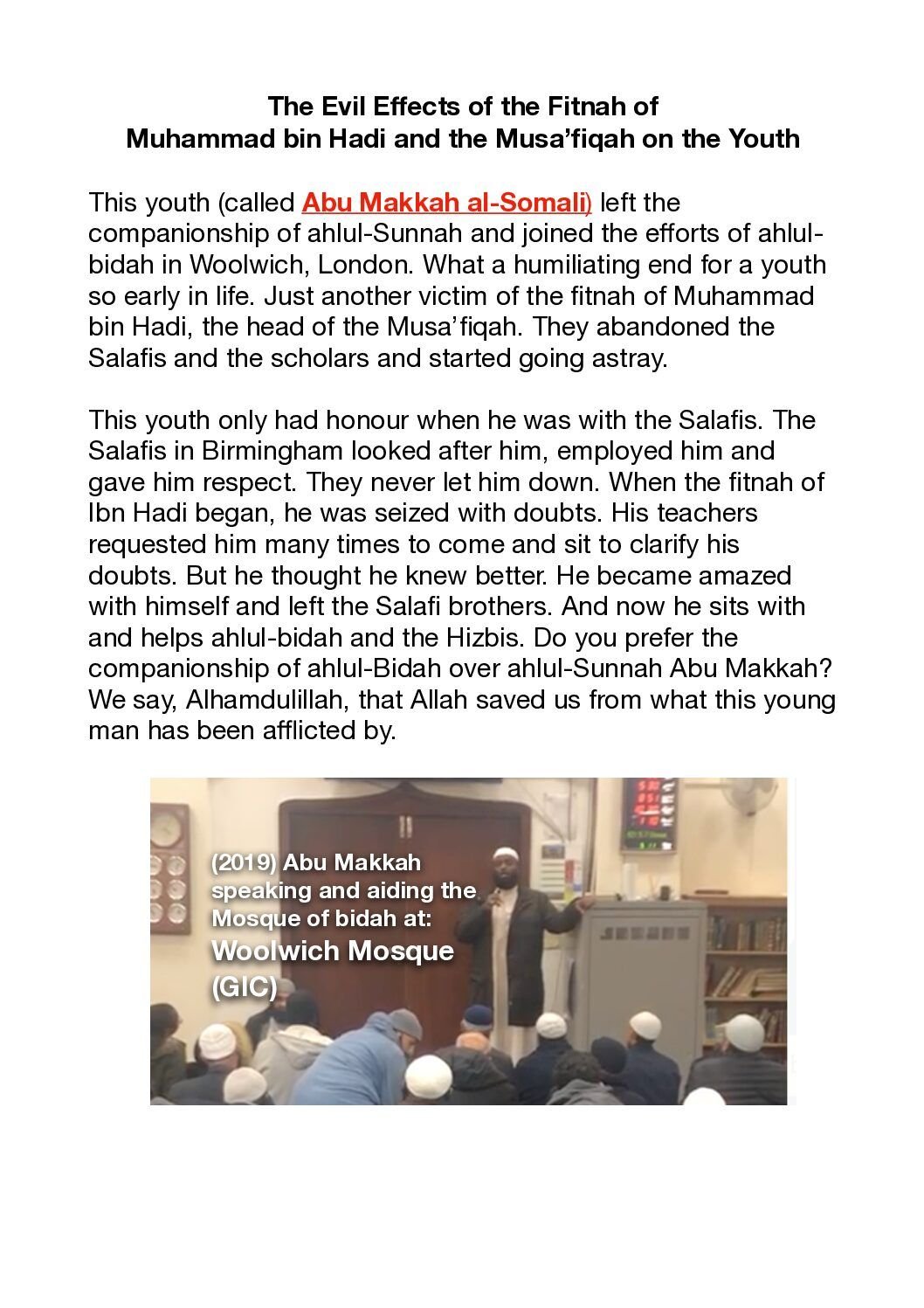Those Evil Affairs That Befalls both Individuals and Society When Security Is Loss
Firstly: The disappearance of the Jamaa’ah leads to disappearance of (the sound) religion; then the evil people will overpower the good people. The people of corruption and falsehood become stronger than the people of uprightness and truth. The corrupters hasten to spread corruption in the earth – spreading terror and fear- and fear is instilled in the hearts of the people…
Secondly: People are hindered from the affairs of their (daily) lives -businesses close and the schools that were opened to teach the young and old are deserted; (people are) hindered from work and trade becomes stagnant.
Thirdly: It may lead to deterioration in some people’s (mental wellbeing) and thus may either lead to insanity or suicide etc This is the hardship a person exposes himself to due to abandoning Allaah’s Sharee’ah. [Allaah said]:
وَمَنْ أَعْرَضَ عَن ذِكْرِي فَإِنَّ لَهُ مَعِيشَةً ضَنكًا وَنَحْشُرُهُ يَوْمَ الْقِيَامَةِ أَعْمَىٰ
But whosoever turns away from My Reminder (i.e. neither believes in this Qur’an nor acts on its orders, etc.) verily, for him is a life of hardship, and We shall raise him up blind on the Day of Resurrection. [20:124]
Fourthly: It leads a person to fall into trial. Allaah (The Most High) said:
فَلْيَحْذَرِ الَّذِينَ يُخَالِفُونَ عَنْ أَمْرِهِ أَن تُصِيبَهُمْ فِتْنَةٌ أَوْ يُصِيبَهُمْ عَذَابٌ أَلِيمٌ
And let those who oppose the Messenger’s (Muhammad) commandment (i.e. his Sunnah legal ways, orders, acts of worship, statements, etc.) (among the sects) beware, lest some Fitnah (disbelief, trials, afflictions, earthquakes, killing, overpowered by a tyrant, etc.) befall them or a painful torment be inflicted on them. [End of Ayah (24:63)] and that is the Fitna of lowly desires and the fitna of doubts in one’s religious affairs.
Fiftly: Fear replaces security in different ways; so political security, economic security, social security and physical well-being are loss, and (likewise) protection against (corrupt ideas and thoughts).
Sixthly: Human life will be given no value, so a person is killed but will not know why he was killed and the one who killed him will not know why he really killed.
Narrated ‘Abdullãh and Abu Moosaa: ‘’The Prophet said, “Near the establishment of the Hour there will be days during which general ignorance will spread, (religious) knowledge will be taken away (vanish) and there will be much Al-Harj, and Al-Harj means killing.’’ [Bukhaari Number 7065]
Abu Huraira reported Allaah’s Messenger (sallAllaahu alayhi wa sallam) as saying: The world would not come to an end until a day would come to the people on which the murderer would not know as to why he has killed and the slain would not know as to why he has been murdered. It would be said: Why would it happen? To which he replied: It would be because of general massacre and bloodshed. And the slaughterers and the slain would be in Fire. [Sahih Muslim Number 2908]
Seventhly: Oppression will be widespread in the earth and the oppressor will not be stopped. The best of us will supplicate to Allaah but it will not be answered due to (the presence of) too much wickedness.
—————————————————————————————————————-
Source: Silsilah Ar-Rasaa-il Al-Manhajiyyah Fin Nushi War’irshaad Wat-Taw’iyah’ pages 16-20’ by Shaikh Muhammad Baazmool (may Allaah preserve him); Abridged and slightly paraphrased]
To be continued In-Shaa-Allaah








